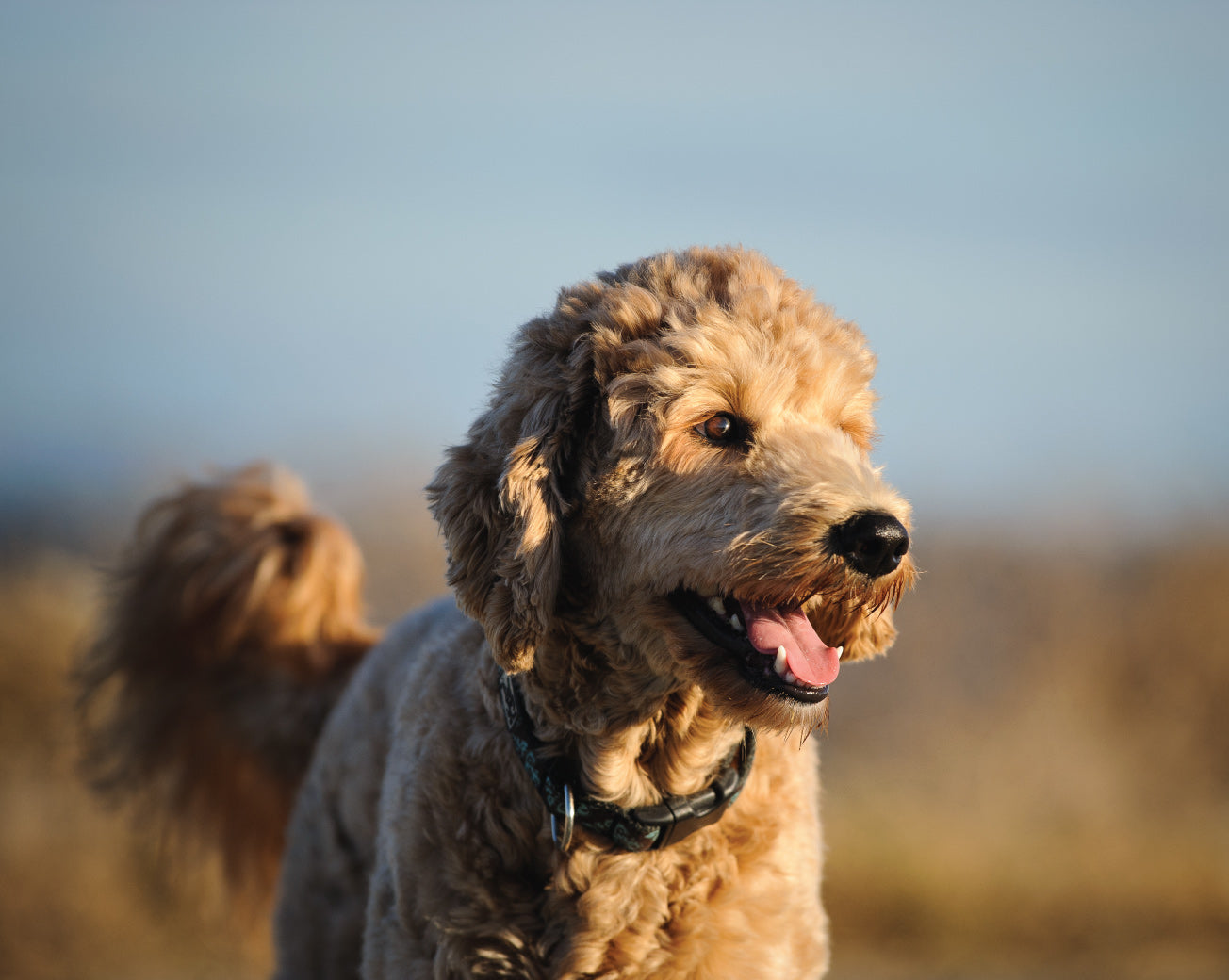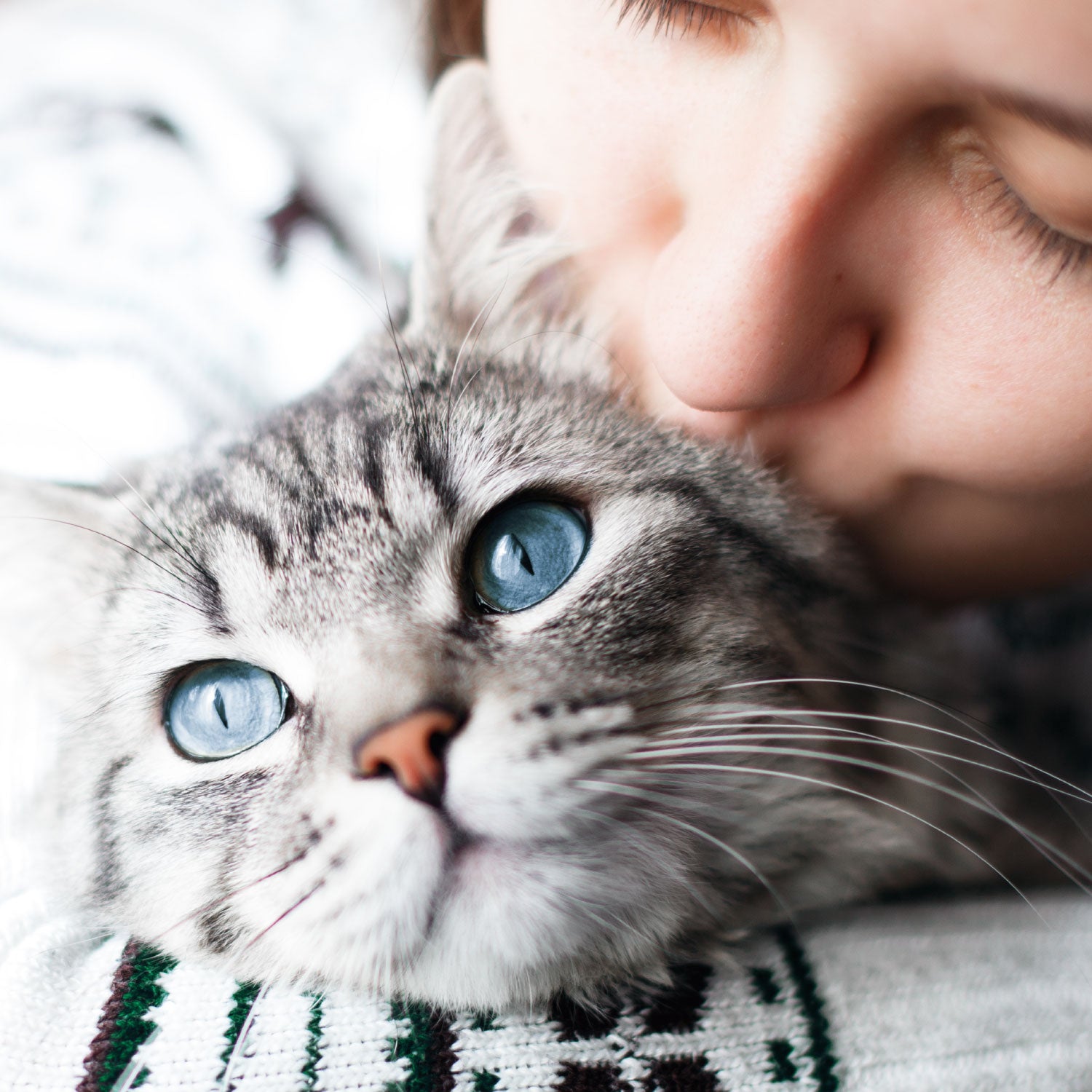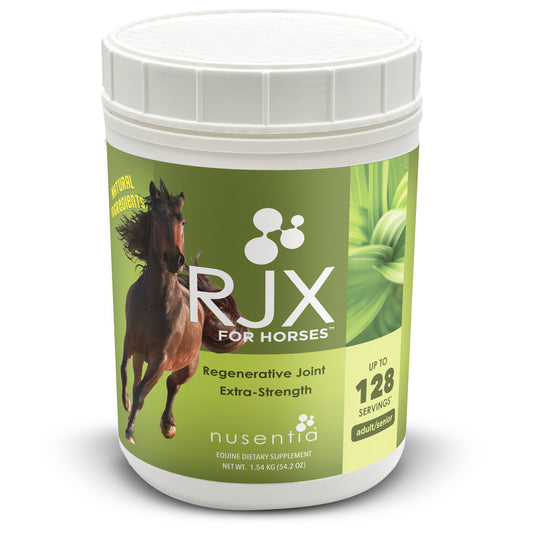

Collection: Horse Hip & Joint Remedies

Natural Remedies for Horses with Hip & Joint Issues
Degenerative conditions affecting equine hip, joints, and articular cartilage can often be improved through natural nutrition with glucosamine, chondroitin, and MSM.
Summary
RJX is a triple-strength, non-steroidal liquid. The concentrated formula with absorbs fast and acts fast on stiff joints.
RJX™ for Horses is a powerful formula designed to provide the nutritional building blocks for great joint health without negative side effects. Made with glucosamine sulfate, chondroitin sulfate, and MSM for safe, natural, and effective rebuilding and protecting of joints.
"Just want to tell you that my farrier was VERY pleased with my horse's pastern after 1.5 months on this product!!!! I am so excited that he's getting movement back in his pastern this fast!!!! He was recovered off the track with a vertical front canon fracture and had 2 plates on his bone for 10 months, so he lost some flexion there. The back has come back nicely so it's rotating around to the front. This is truly amazing for Joey! He was having a lot of lameness at trimming. My farrier said..... "Joey definitely has more movement in his pastern than he has since I began his hoof care. I was very surprised to see the amount of movement, and the fact when I did a flexion test, he really leaned into it, as if it felt so good."
WHAT IS IT?
Degenerative joint diseases are common for aging horses and horses that have suffered injuries. Horses may build up to an arthritic condition in a non-obvious way over a matter of years, or have a sudden, obvious onset of arthritis in the hips and legs. Early identification of joint issues can help prevent long-term damage to the hip and joints.*
If your horse has a sudden onset of lameness, you should call your vet.
CAUSES OF HORSE ARTHRITIS:
- Aging
- Injuries
- Genetic disposition
HOW TO RECOGNIZE JOINT DEGENERATION
Like we said, catch it early. Know the signs. The best time to spot these signs is right after some light exercise.
-
Puffiness Around Joints (synovitis)
Especially on weight bearing joints. The best way to know when your senior horse has puffy joints, is to inspect them closely when they're not puffy, when they're younger. Know the difference. The joints around the feet, pastern and fetlock as well as the carpal, knee, joints should look defined. Over time, synovitis may be accelerating, the soft fluid areas will fill in and reduce the definition of these areas. This is a perfect time to employ a home remedy to protect from joint damage. - "Clicking" or "creaky" joint sounds
-
Limping
This isn't necessarily arthritis, but it is an obvious sign of a problem. See your vet. -
Reluctance to Move Normally
Your horse may seem to squirm, raise his head or hollow his back. He may be slow to get going. Take note of this.
NATURAL REMEDIES FOR ARTHRITIC HORSES
A horse with an acute onset of arthritis may need special therapy or veterinarian care. Catching joint issues early with horses is the way to go. These steps will help promote great joint health for years ahead for your horse.
-
Get Him Out of the Stall
Light, regular exercise is very important to keep promoting joint-fluid circulation, as well as overall health. If you can let him live on a pasture, that's ideal. But if a pasture life isn't possible, turn him out in a paddock, or give him regular walks. -
Passive Movement Therapy
Pick up each leg, bend and straighten the joint areas. Repeat about 10 times and perform this action about 4 times per day if possible. This will keep scar tissue from forming and helps promote cartilage and soft tissue healing. -
Provide Joint Nutrients
There is good evidence that providing your horses with natural joint nutrients, such as glucosamine, chondroitin, and MSM, can help protect and repair from joint damage. Try RJX for Horses. -
Maintain Good Living Conditions
Make sure his living quarters are clean and dry.
-
RJX for Horses™
Regular price $84.95Regular priceUnit price / per

